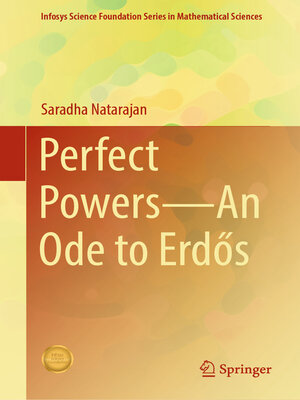
Sign up to save your library
With an OverDrive account, you can save your favorite libraries for at-a-glance information about availability. Find out more about OverDrive accounts.
Find this title in Libby, the library reading app by OverDrive.



Search for a digital library with this title
Title found at these libraries:
| Library Name | Distance |
|---|---|
| Loading... |
The book explores and investigates a long-standing mathematical question whether a product of two or more positive integers in an arithmetic progression can be a square or a higher power. It investigates, more broadly, if a product of two or more positive integers in an arithmetic progression can be a square or a higher power. This seemingly simple question encompasses a wealth of mathematical theory that has intrigued mathematicians for centuries. Notably, Fermat stated that four squares cannot be in arithmetic progression. Euler expanded on this by proving that the product of four terms in an arithmetic progression cannot be a square. In 1724, Goldbach demonstrated that the product of three consecutive positive integers is never square, and Oblath extended this result in 1933 to five consecutive positive integers. The book addresses a conjecture of Erdős involving the corresponding exponential Diophantine equation and discusses various number theory methods used to approach a partial solution to this conjecture.
This book discusses diverse ideas and techniques developed to tackle this intriguing problem. It begins with a discussion of a 1939 result by Erdős and Rigge, who independently proved that the product of two or more consecutive positive integers is never a square. Despite extensive efforts by numerous mathematicians and the application of advanced techniques, Erdős' conjecture remains unsolved. This book compiles many methods and results, providing readers with a comprehensive resource to inspire future research and potential solutions. Beyond presenting proofs of significant theorems, the book illustrates the methodologies and their limitations, offering a deep understanding of the complexities involved in this mathematical challenge.







